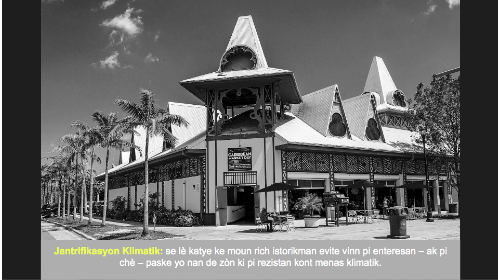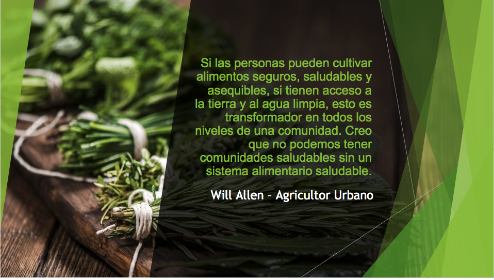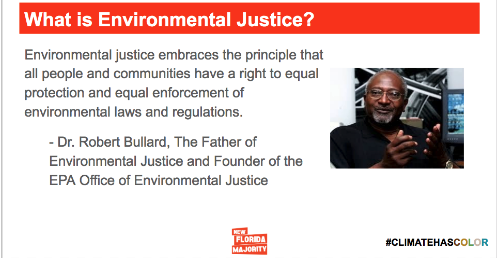
Equity and Adaptation: Florida Rising
As the challenges of the climate crisis increase, so does the urgency of developing truly equitable adaptation plans . While Black, brown, and Indigenous communities contribute the least to greenhouse gas emissions, they are living with the harshest climate impacts.
The long history of land theft, segregation, and redlining that gained momentum in the 1930s has also placed communities of color in areas that face the greatest flood and hurricane risk, higher temperatures and energy bills, and destruction of Indigenous farm land to name just a few impacts. To confront these threats, we need to engage a diverse electorate of voters to consider the impact of climate change from a racial equity lens.
A New Approach to Outreach
Recognizing that those who face the brunt of the climate crisis are the real experts in the lived experience of climate change and should be part of adaptation planning, Florida Rising Together – formerly New Florida Majority Education Fund – launched a new kind of climate justice outreach program.
This initiative targeted communities in Duval, Broward, and Miami-Dade counties and aimed to collaborate with members of these communities to share the narrative of their experience with climate change. In order to promote language justice and serve Florida’s diverse demographics, it was a key priority that in the first phase, all materials were available in three languages: English, Spanish, and Haitian Creole.

Addressing the Disconnect
This approach highlighted the all-too-common disconnect between scientific jargon used to describe the climate crisis, the lack of racial and cultural diversity in the space, and the absence of community-specific daily challenges in the conversation. To address this, we organized virtual events with open and honest community conversations, including webinars on the climate crisis, climate justice, extreme heat, gentrification, and food insecurity using the newly crafted materials.

Developing this program highlighted numerous gaps in public discussions of climate justice and a strong need for conversations on the social and racial inequities in the climate change space. We know t hose impacted first and the worst by the climate crisis include Black, brown, and Indigenous communities. As we see it, members of these communities must be included in the climate conversation, seen as experts on the threats they live every day and educated on the local policies and safeguards available, or lack thereof, to help protect their neighborhoods.
One of the biggest lessons of this program is that when we listen to and incorporate community input, we can build trust and foster honest conversations that help build and encourage success. To put it simply, when the local community is part of the process, there is greater engagement and participation.
Highlighting the Importance of Equity
This experience also stresses the importance of equity in spaces discussing climate threats. While acknowledging the historical extractions and oppressions these communities are still facing, it is critical that each community be accounted for based on their needs, their challenges, and their participation in the planning process.

Addressing these challenges calls for ongoing collaboration and solidarity. It also calls for acknowledging that not all communities are impacted by the climate crisis the same way and a single solution approach will not fix all climate threats.
Lastly, we need to work together to build a path forward for equitable climate adaptation. It starts by leaning into movement building, creating a new narrative oriented toward culture change, and organizing at a new scale.
The application for our 2022 Climate Justice for All grants program is now open. If you’re part of an environmental justice organization working with frontline communities in the US, maybe we can help. Our Climate Justice for All program offers up to $20,000 in support, together with professional input and assistance from our team at Climate Reality. The grant period runs from May to December of this year.
Learn more and apply by March 7, 2022, at http://www.climaterealityproject.org/apply/grant.

